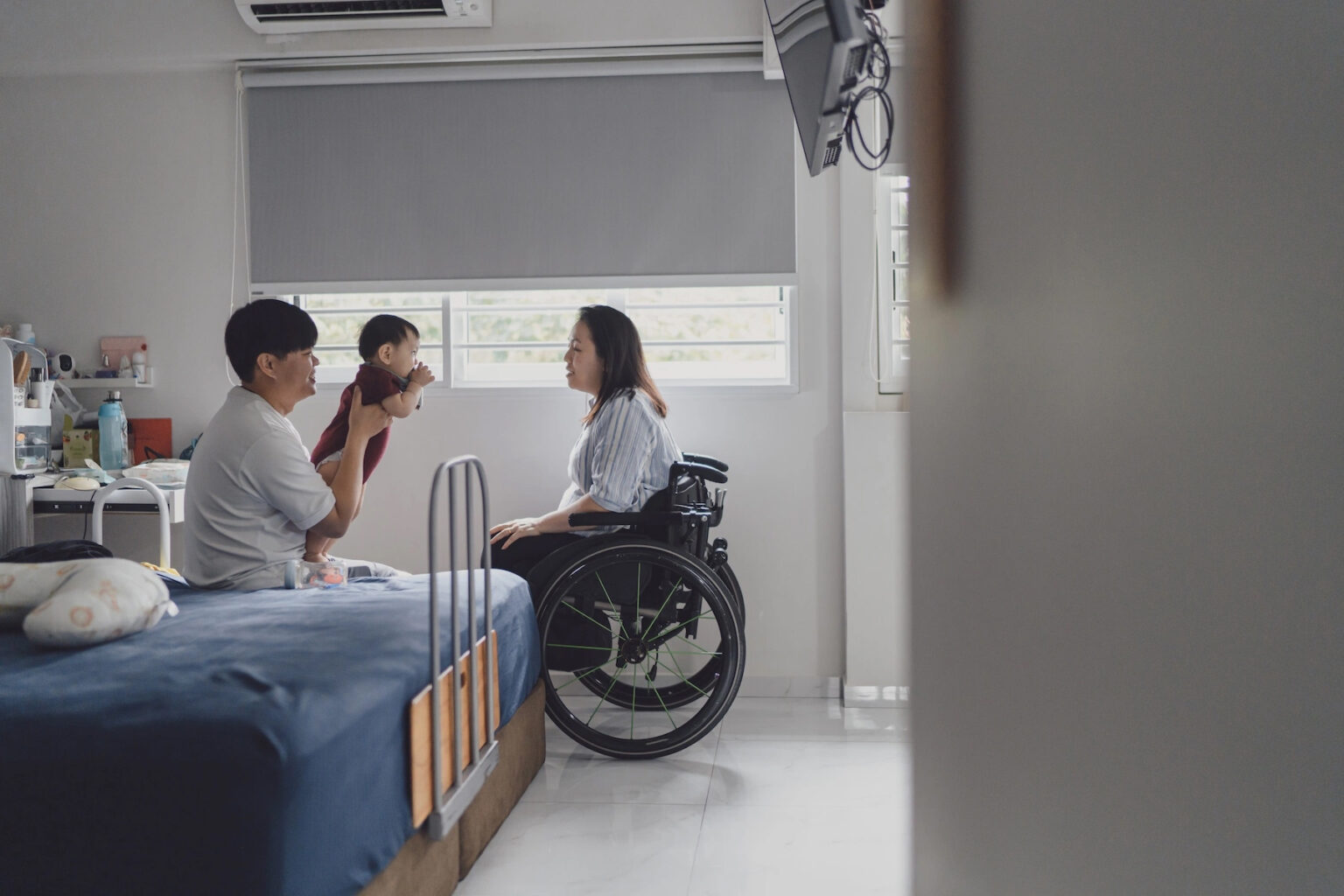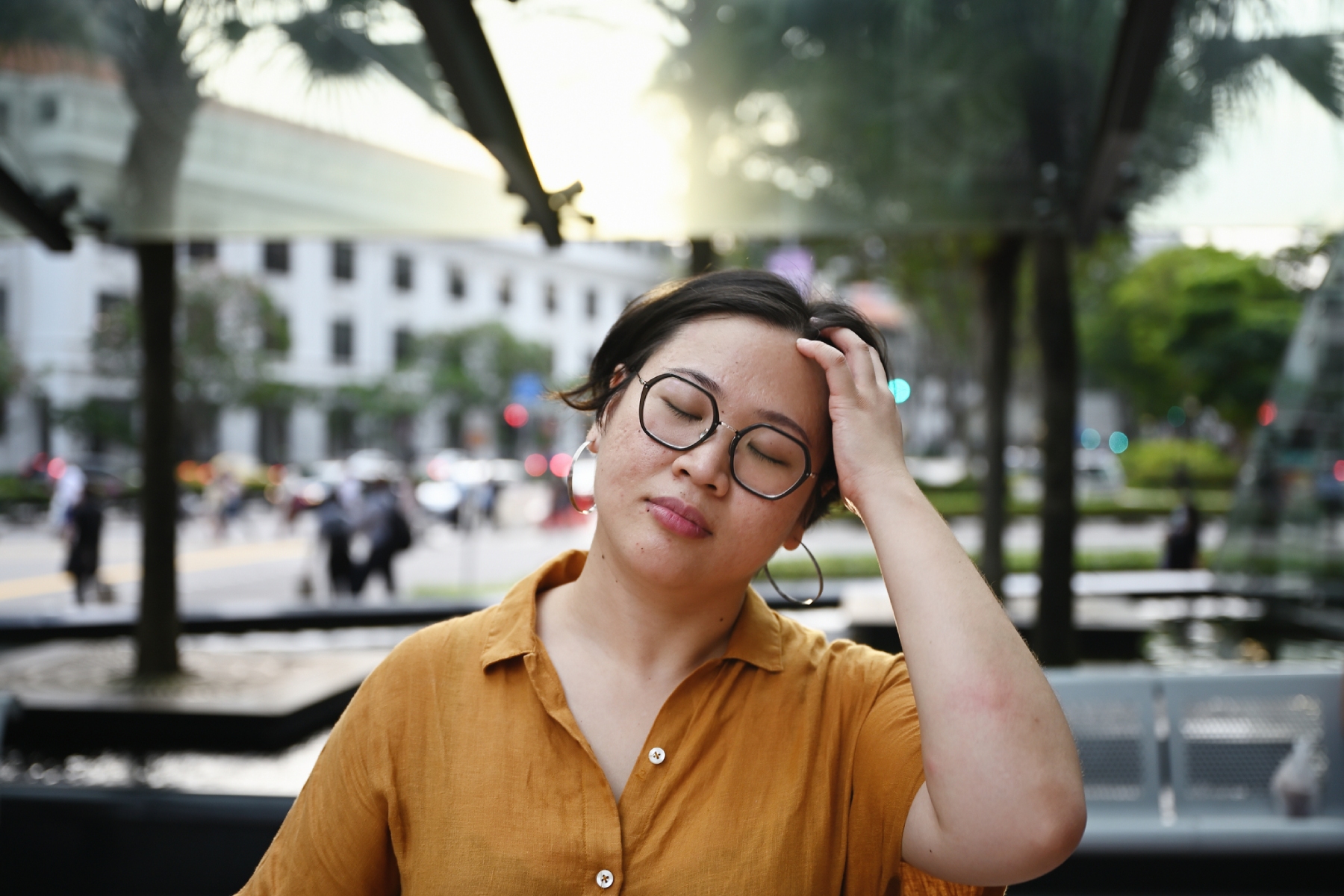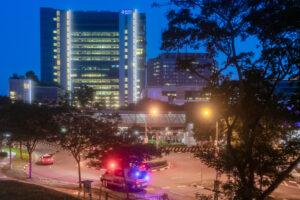Singapore boasts a world-class healthcare system that has consistently delivered top-notch healthcare outcomes. With a comprehensive range of medical services and affordable options, the nation prioritizes the well-being of its residents. However, it’s important to note that healthcare coverage in Singapore is primarily reserved for citizens and permanent residents, and expats may need to rely on private health insurance to access these services.
Find out more by reading the following:
Allianz Care
Allianz Care is a world leader in providing international health insurance. Their various premiums provide professionally designed solutions for a variety of expat lifestyles. So, wherever your life takes you, make sure you have the right health protection for you and your family with Allianz Care.
Overview of healthcare in Singapore
Singapore’s top-tier healthcare system offers both public and private options to all residents. While healthcare in Singapore is accessible and comprehensive, it is not free.
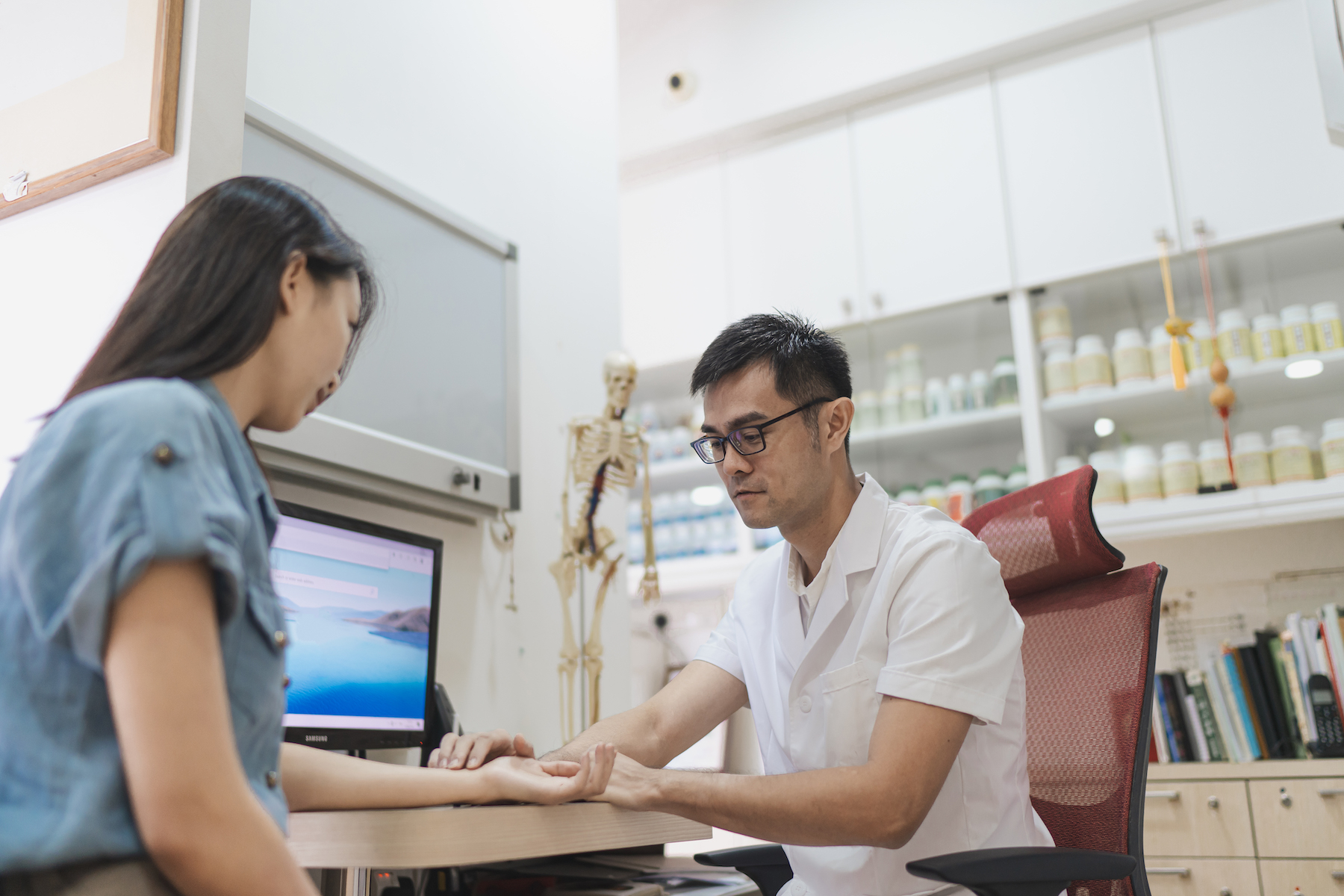
Citizens and permanent residents get coverage for public healthcare services through a multi-layered public insurance and assistance scheme, which takes care of most costs. Meanwhile, temporary residents and short-stay visitors can access services but must choose between taking out private insurance or paying the full cost.
The Ministry of Health (MOH) is in charge of healthcare services in Singapore. It determines policy, allocates national funding, monitors service provision, and sets healthcare fees. The healthcare system in Singapore consists of the following:
- Primary healthcare services through doctor’s offices and polyclinics
- Hospital services
- Dental services
- Intermediate and long-term care services
- Alternative medicines
- Additional support services
Who can access Singaporean healthcare?
Everyone can access healthcare services in Singapore regardless of immigration status, and health insurance is optional for those who don’t qualify for public funding. However, temporary residents and short-stay tourists in Singapore must pay medical fees out of pocket unless they have private health insurance to cover treatment costs.
Citizens and permanent residents in Singapore can access heavily subsidized public healthcare, covering costs through public health insurance and additional subsidy programs. Around 70% of healthcare bills are fully paid for citizens and permanent residents with no out-of-pocket costs.
If you can’t access public healthcare, don’t have private health insurance, and can’t afford private treatment in Singapore, you will only be able to receive emergency treatment. You will still receive a bill for services.
What is the cost of healthcare in Singapore?
As of 2020, Singapore spends US$3,537 per capita on healthcare annually, or around 4% of its GDP. This expenditure generally includes:
- Government funding through taxation, which subsidizes public healthcare for citizens and permanent residents
- Public health insurance paid for by individuals and employers
- Private health insurance taken out by individuals
- Out-of-pocket spending
State subsidies for public services result in tiered patient costs. Citizens pay the lowest rates, permanent residents pay slightly higher, and others pay the highest fees. Children and older adults sometimes get additional discounts. See this public provider fee list for an example.
There are several public subsidies and schemes to reduce healthcare costs for low-income and vulnerable groups. However, these are only for citizens and permanent residents, with some reserved specifically for Singaporeans.
- MediFund – public assistance scheme for the most disadvantaged Singaporean citizens who struggle to make insurance payments and afford basic medical costs
- Community Health Assist Scheme (CHAS) – income-based subsidies for citizens so that they can access doctor and dental services
Do you need health insurance in Singapore?
Singaporean citizens and permanent residents are automatically registered for public health insurance. Those working or with an income make contributions, with employers also contributing.
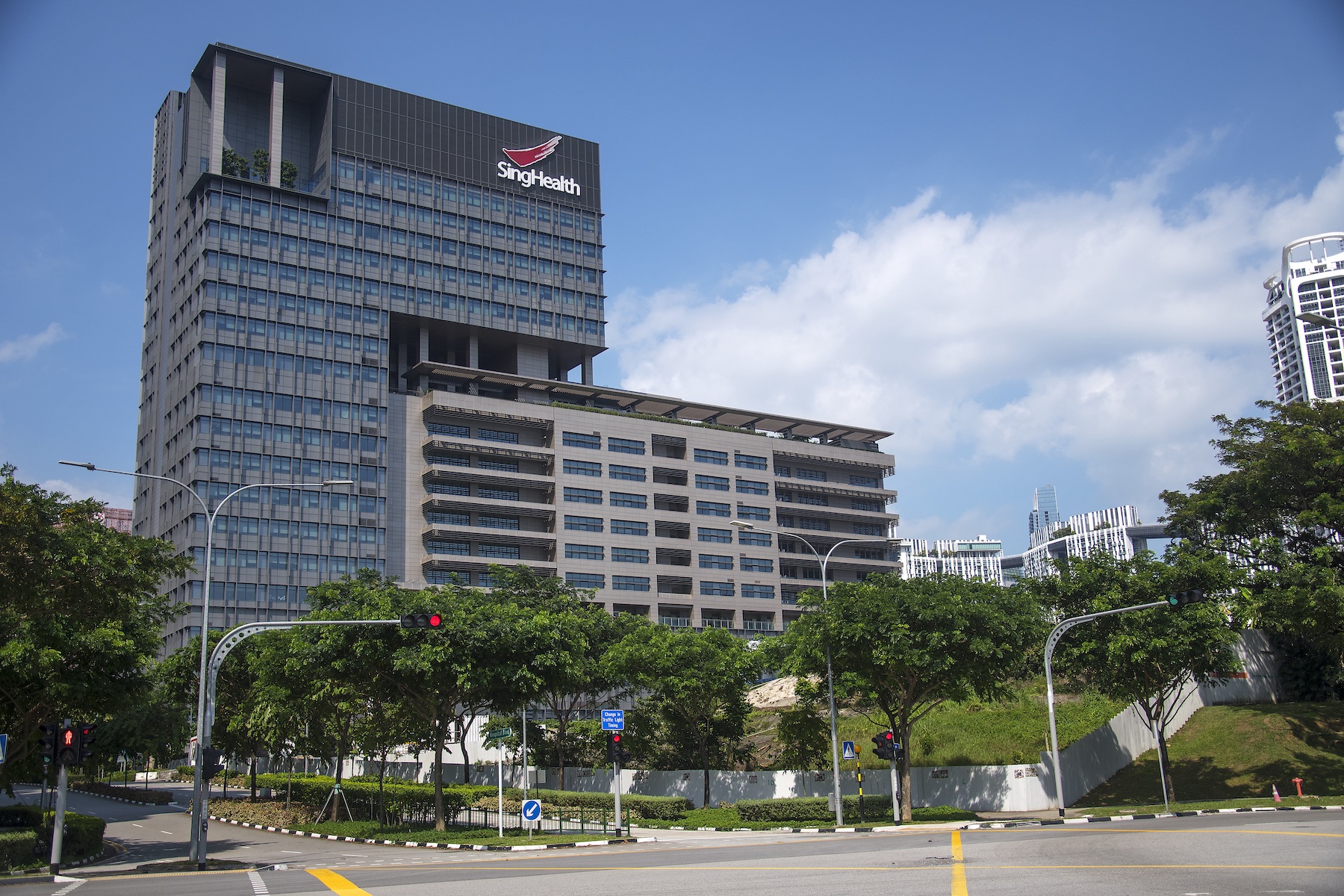
The health insurance system in Singapore mainly consists of the 3 M’s:
- MediShield Life – compulsory health insurance that covers large costs such as hospital bills, emergency treatment, or specialist care
- MediSave – medical savings scheme where residents pay 8–10.5% of their salary (split between employee and employer) into a fund to use on general day-to-day healthcare costs and to cover insurance premiums for themselves and any dependents
- MediFund – the safety net scheme to cover healthcare costs for those that can’t afford to pay, only available to citizens
There is also a separate CareShield Life insurance scheme for citizens and permanent residents to cover long-term care costs later in life.
In Singapore, temporary residents and short-stay visitors can take out private medical insurance to cover healthcare costs. This can be with a national provider or an international expat-friendly package from a global provider.
Those without insurance can access services but will have to pay full fees themselves. Citizens and permanent residents can also choose to top up their public health insurance with private insurance through the Integrated Shield program.
Those in Singapore on an S Pass work visa will have private health insurance through their employer. Those on other work visas may have work-based private insurance but this is not compulsory for the employer to arrange.
How to register for Singaporean healthcare as an expat
Registration for public healthcare and health insurance is automatic for citizens and permanent residents in Singapore. This means you don’t have to worry about registering with any local health authority.
If you take permanent residence in Singapore, you should receive the details of your statutory insurance plan and MediSave account. You can contact the Central Provident Fund (CPF), which manages Singapore’s social security system, if you don’t receive anything.
Expats without permanent residence don’t need to register to access healthcare in Singapore. All residents in Singapore, temporary or permanent, can choose to register with individual healthcare providers, for example, doctors or dentists, if they want to. However, this is not essential to access services.
Overview of private healthcare in Singapore
Singapore has a sizable private healthcare sector that operates alongside government-funded public services. This generally caters to foreigners in the country who cannot access subsidized public healthcare.
Both public and private facilities generally offer an excellent standard of medical care. The main differences between the two are greater choice of providers, a more extensive range of treatments, and upgraded services (e.g., private hospital rooms) in the private sector.
Another big difference is the price. Private facilities don’t receive government subsidies, so patients have to pay higher fees. You can cover these fees by taking out a private health insurance plan. Around 68% of citizens and permanent residents also top up their public insurance with an Integrated Shield private plan.

The MOH regulates private sector healthcare fees and publishes a list of fee benchmarks. General costs for private healthcare in Singapore include:
- Hospital inpatient fee – S$210–420 per day
- Specialist outpatient consultation – S$75–150 per day
- Single hospital room – S$720 per day
- Dental checkup – S$40–170
- Surgery costs – S$550–35,500, depending on the type of surgery
Global health insurance providers offering private international healthcare plans for expats include:
Overview of primary care in Singapore
Healthcare professionals
Doctors and specialists in Singapore
Doctors are part of primary healthcare in Singapore and are the first port of call if you have a health issue. They operate from government-funded polyclinics, private doctor clinics, and health centers.
There are 23 polyclinics in Singapore, which usually have at least 10 doctors. Around 1,800 medical clinics also provide about 80% of primary care in Singapore. Many of these have been organized into primary care networks (PCN), linking with other health professionals to offer more holistic care.
Most clinics offer walk-in sessions, or you can make an appointment if you don’t want to wait. Most private doctors receive state subsidies to provide discounts to citizens and permanent residents, while polyclinics accept non-residents but charge them higher fees.
Expect to pay between S$15–30 for a consultation as a citizen/permanent resident and around S$50–60 as a temporary/non-resident in a polyclinic.
Specialists in Singapore work in polyclinics, hospitals, and specialist medical centers. There are 35 registered medical specialists in Singapore. You typically need a general doctor’s referral to access specialist healthcare through the public insurance system.
Singaporean dentists
Dental care is similar to other forms of healthcare in Singapore in that there is a mix of public and private providers offering different treatment rates based on residence status. The overall quality of treatment is high. The Singapore Dental Council regulates the country’s dentists.
Singapore has two major dental facilities: the National Dental Center Singapore (NDCS) and the National University Center for Oral Health Singapore (NUCOHS). In addition to this, you can find dentists at polyclinics, hospitals, and private practices. The NDCS maintains a database where you can search for dentists.
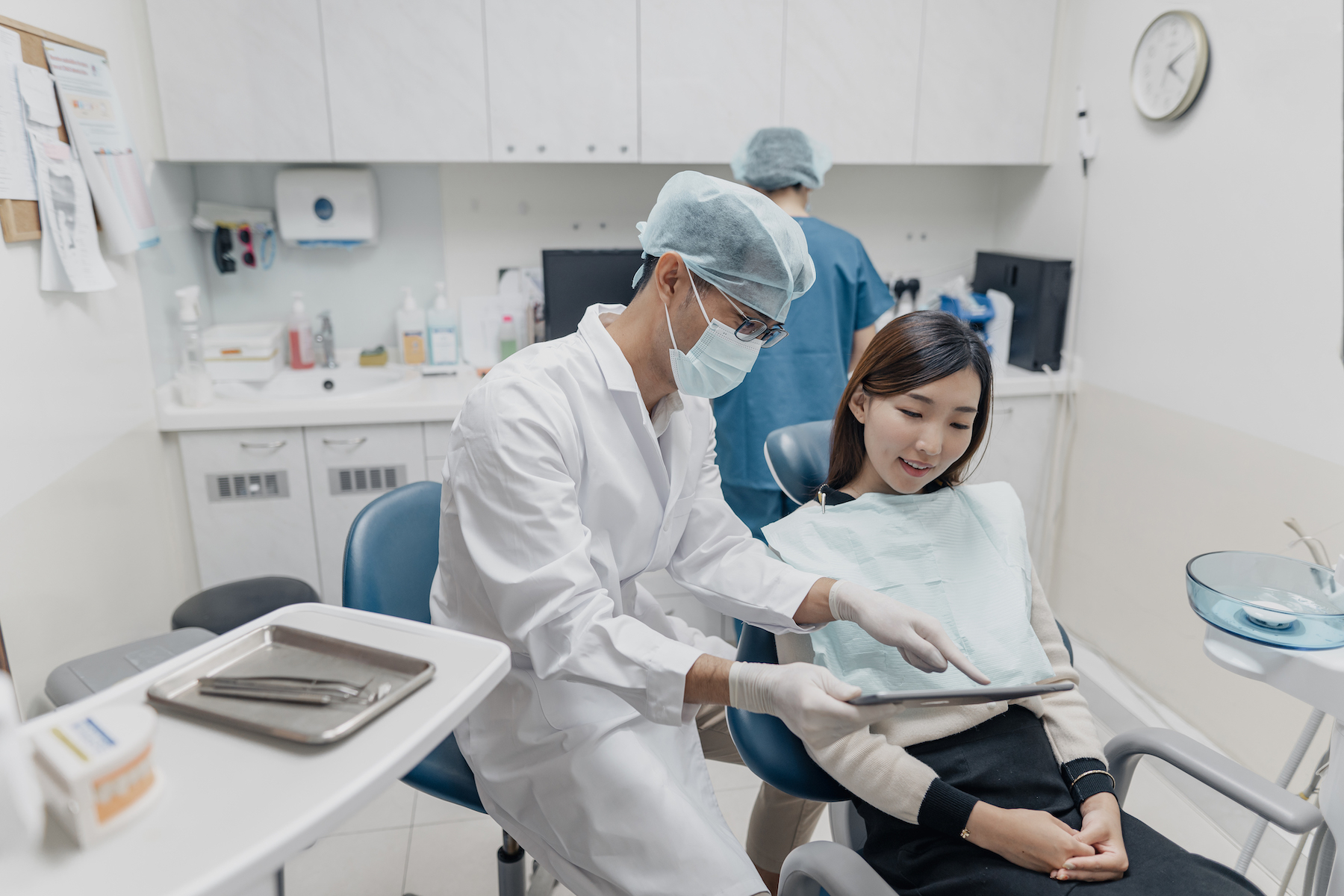
Health insurance usually covers basic and emergency treatment, with options to cover additional treatments through most private plans.
Expect to pay between S$15–50 for a checkup as a citizen/permanent resident and between S$35–75 as a temporary/non-resident in a public facility. The NDCS charges S$31–77 to citizens/residents and S$79–169 to temporary/non-residents for routine consultations.
Physical therapy in Singapore
Physiotherapists work in both public and private settings in Singapore. Most belong to the Singapore Physiotherapy Association and all must register with the Allied Health Professionals Council (AHPC). There is a range of treatment available including:
- Cardiopulmonary therapy
- Chronic pain management therapy
- Neurological physiotherapy
- Orthopedics
- Sports therapy
- Surgery rehabilitation therapy
- Vestibular rehabilitation
Costs vary depending on the treatment needed, provider fees, insurance coverage, and residence status. Public insurance usually covers therapy with a referral, for example, to recover from surgery or severe illness or dealing with chronic pain. Private insurance has the option to cover different types of treatment.
The MOH has set up the Chronic Disease Management Program, covering subsidized therapy for 23 conditions at polyclinics, PCNs, and hospitals. Treatment can include physical therapy. There are further subsidies available for rehabilitative treatment at community hospitals.
Specialized healthcare
Women’s healthcare
The standard of women’s healthcare in Singapore is high through both public and private services. Gynecologists and obstetricians are both registered specialists in Singapore. Women can see either a gynecologist or general doctor to discuss sexual healthcare concerns.
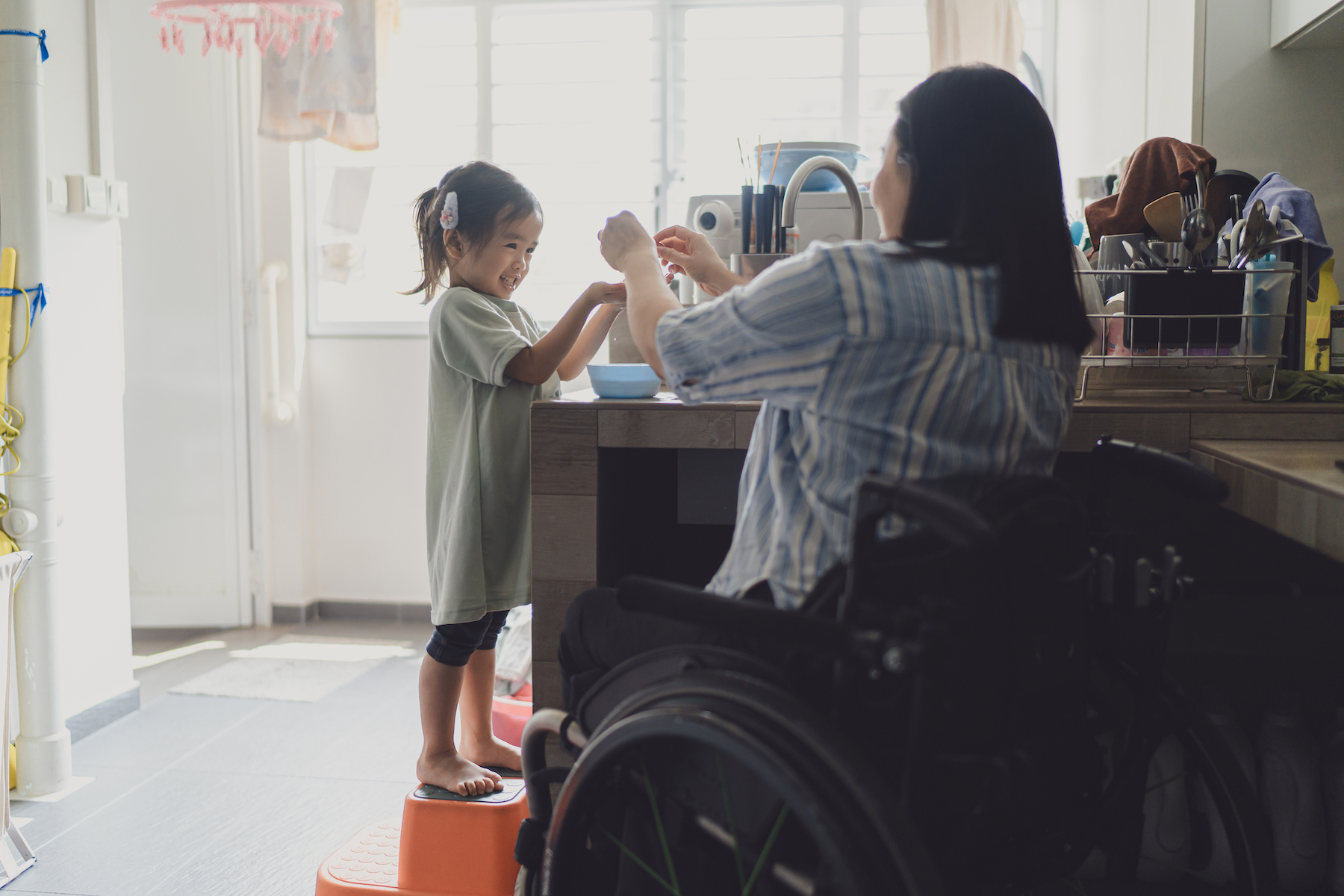
Public or private insurance can cover most maternity care, health screenings, abortion costs, and some fertility treatments. However, standard insurance generally doesn’t cover contraceptive methods.
Maternity care generally includes prenatal and antenatal care as well as birthing costs. Most births in Singapore take place in hospital maternity wings. Abortion in Singapore is legal until 24 weeks or later if the expectant mother’s health is at risk.
Fertility treatments available in Singapore include in vitro fertilization (IVF) and Intrauterine insemination (IUI). Condoms and birth control pills are available to buy from most pharmacies. Other birth control methods include intrauterine devices (IUDs), diaphragms, sponges, and tubal ligation.
There are national cancer screening programs for breast cancer (those 40 and above) and cervical cancer (those 25 and above).
Children’s healthcare
General pediatricians and specialists provide regular health checks and treatment in children’s hospitals and pediatric centers. Public health insurance in Singapore generally covers healthcare costs for dependent children.
Private health insurance also usually has the option for family coverage. If you are a Singaporean citizen and have a baby, you can expect to receive a grant of S$4,000 to your MediSave account to cover medical costs for your child.
There are 12 recommended vaccines for children on the MOH public health schedule. These include immunization against Hepatitis B, MMR (measles, mumps, and rubella), and human papillomavirus (HPV). Health insurance typically covers these standard vaccinations.
Mental healthcare
As is the case in many countries, mental health provision lags behind general health provision in Singapore. Many residents struggle to access necessary services.
Singapore’s public healthcare service launched a Community Mental Health Plan in 2017 to try and address the situation. More mental health provision is now available through doctors and hospitals. The Institute of Mental Health, Singapore’s one public hospital of psychiatry, provides specialist inpatient and outpatient care.
Public insurance can cover the costs of services such as therapy if through a general doctor referral. Those using private insurance can choose to cover different levels of mental health treatment. If you experience mental health problems in Singapore, you should contact a general doctor in the first instance. They will then decide on the best course of action.
COVID-19 in Singapore
The Singaporean government responded to the COVID-19 pandemic in 2020 with measures including short-term national lockdowns, testing and tracing, and eventually a vaccination rollout. Singapore had high vaccination rates from early on, reaching 80% coverage midway through 2021. Measures have now been lifted, although visitors must fill in an SG Arrival Card declaration within three days of arriving.
You can get up-to-date COVID-19 information from the MOH website or find a COVID test center on the government list.
Long COVID support in Singapore
Many who contract COVID-19 continue to suffer effects after the virus has passed. These can include fatigue, joint and muscle problems, concentration difficulties, or loss of taste/smell.
Research has shown that over half of those worldwide who have had the virus experience at least one symptom six months after infection. This is known as long COVID, or post-COVID in some countries, and understanding of the illness is still somewhat limited.
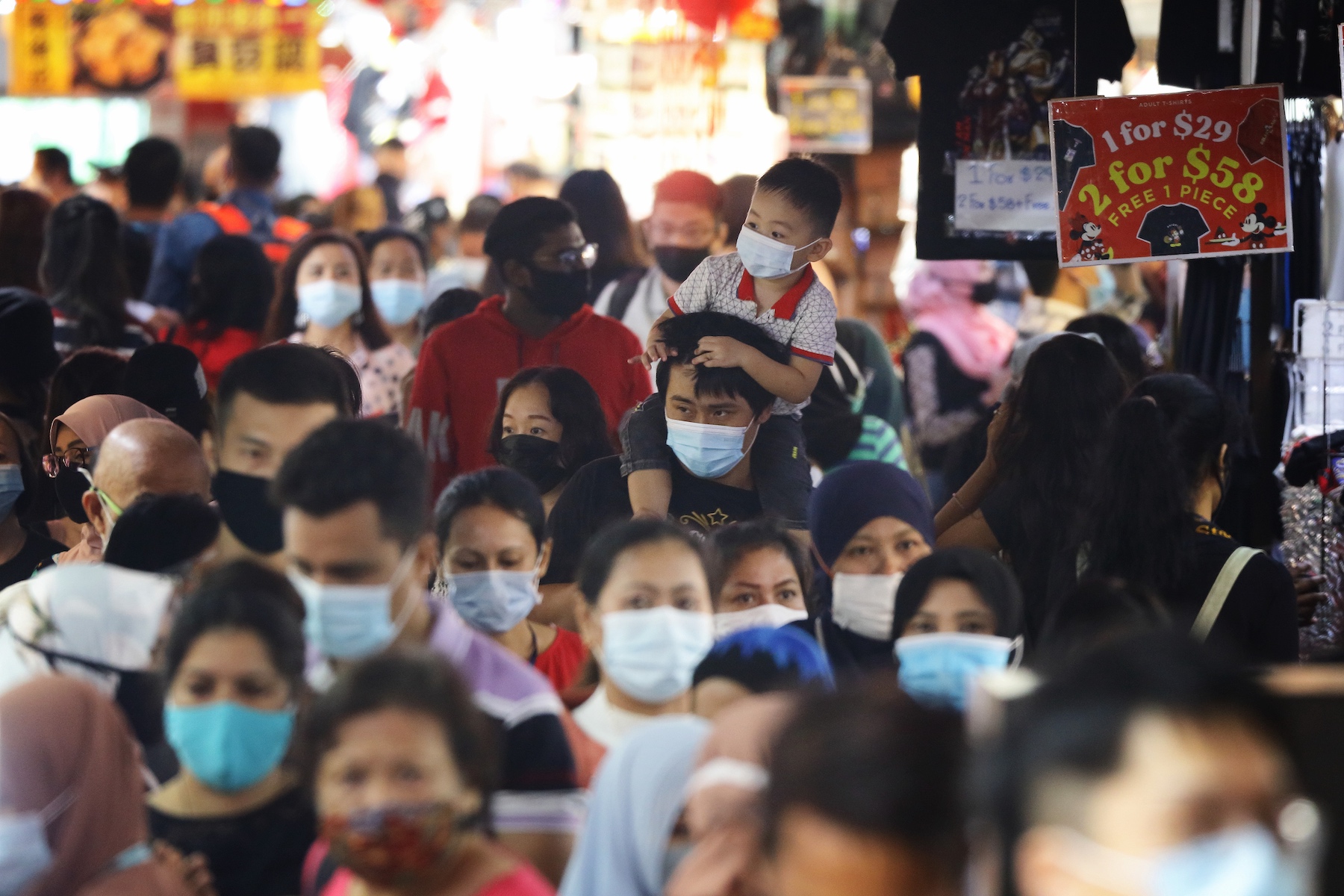
A study by the National Center for Infectious Diseases (NCID) in Singapore found that 10% of covid patients experienced persistent symptoms six months after infection. However, this was a study of unvaccinated people back in 2020. The MOH doesn’t keep data on long COVID sufferers and there is no nationwide support program available. However, there are now a few long COVID rehabilitation clinics.
Facilities are available at:
The private healthcare group IHH Healthcare also provides post-COVID support at two of its hospitals. You can get a referral for long COVID treatment at these facilities from your local polyclinic or general doctor clinic. You can also reach out to global support networks such as Survivor Corps.
It’s worth noting that long COVID can also affect children who have had the virus. There have been no studies on long COVID in children in Singapore but KK Women’s and Children’s Hospital (KKH) is in the process of carrying out research. You should contact a local doctor or polyclinic if your child exhibits signs of long COVID.
Healthcare facilities
Health centers and clinics in Singapore
Across Singapore, you can find both public polyclinics and private medical centers. Private centers tend to be preferred by expats and anyone with urgent health needs, while polyclinics are more popular with Singaporeans and for longer-term care. Private medical centers, like Raffles Medical or Central 24-Hour, are much more expensive for citizens, but only slightly more than a polyclinic for expats.
Singaporean polyclinics generally provide the following services:
- General doctor and dental services
- Outpatient medical treatment
- Follow-up treatment after hospital discharge
- Some maternity and child health services
- Vaccinations
- Health screening and education
- Diagnostic and pharmaceutical services
The majority of polyclinics in Singapore are run by two groups: National Healthcare Group and SingHealth. Anyone can use services provided at these clinics. Fees depend on residence status and can usually be mostly covered with public or private health insurance.
You can search for registered healthcare facilities in Singapore on the MOH directory.
Singaporean hospitals
You can find both public and private hospitals in Singapore. Public hospitals are run as private corporations owned by the government, which gives them more autonomy.
There are 14 public hospitals in Singapore, including general hospitals, a women’s and children’s hospital, a psychiatry hospital, and six specialty centers focusing on cancer and cardiology. In addition, the government has created a small number of community hospitals to deal with intermediate care.
General hospitals offer inpatient and outpatient care and usually have emergency wards, maternity wards, pediatric wards, and several different specialist departments. Public insurance covers inpatient stays in basic (B2 and C) communal wards. You can buy private insurance to upgrade to a private room or treatment in a private facility.
Singaporean pharmacies
You can find Singaporean pharmacies in main shopping districts and often attached to polyclinics and hospitals. In addition to filling prescriptions, many offer healthcare advice and extra services such as blood pressure checks.

Pharmacies in Singapore also sell over-the-counter medication. For prescriptions, you will need approval from a licensed primary care doctor or specialist. Citizens and permanent residents get subsidized prescriptions. This can be up to 75% for products on the standard drug list or medication assistance fund. Others will have to pay full fees, although this can be covered through private insurance.
You can find 24-hour pharmacies and those with standard opening hours (usually 09:00–18:00). Search for pharmacies through the Singapore Pharmacy Council.
Pharmacies in Singapore generally don’t accept overseas prescriptions. If you want to bring medication into Singapore, check the details on the Health Sciences Authority website.
Other forms of healthcare in Singapore
Alternative medicine in Singapore
Complementary and alternative medicine (CAM) is available in Singapore and occasionally prescribed by family doctors. Traditional Chinese Medicine (TCM) is the most well-known form and is the only CAM fully regulated in Singapore. Those practicing TCM in Singapore must register with the TCM Practitioners Board.
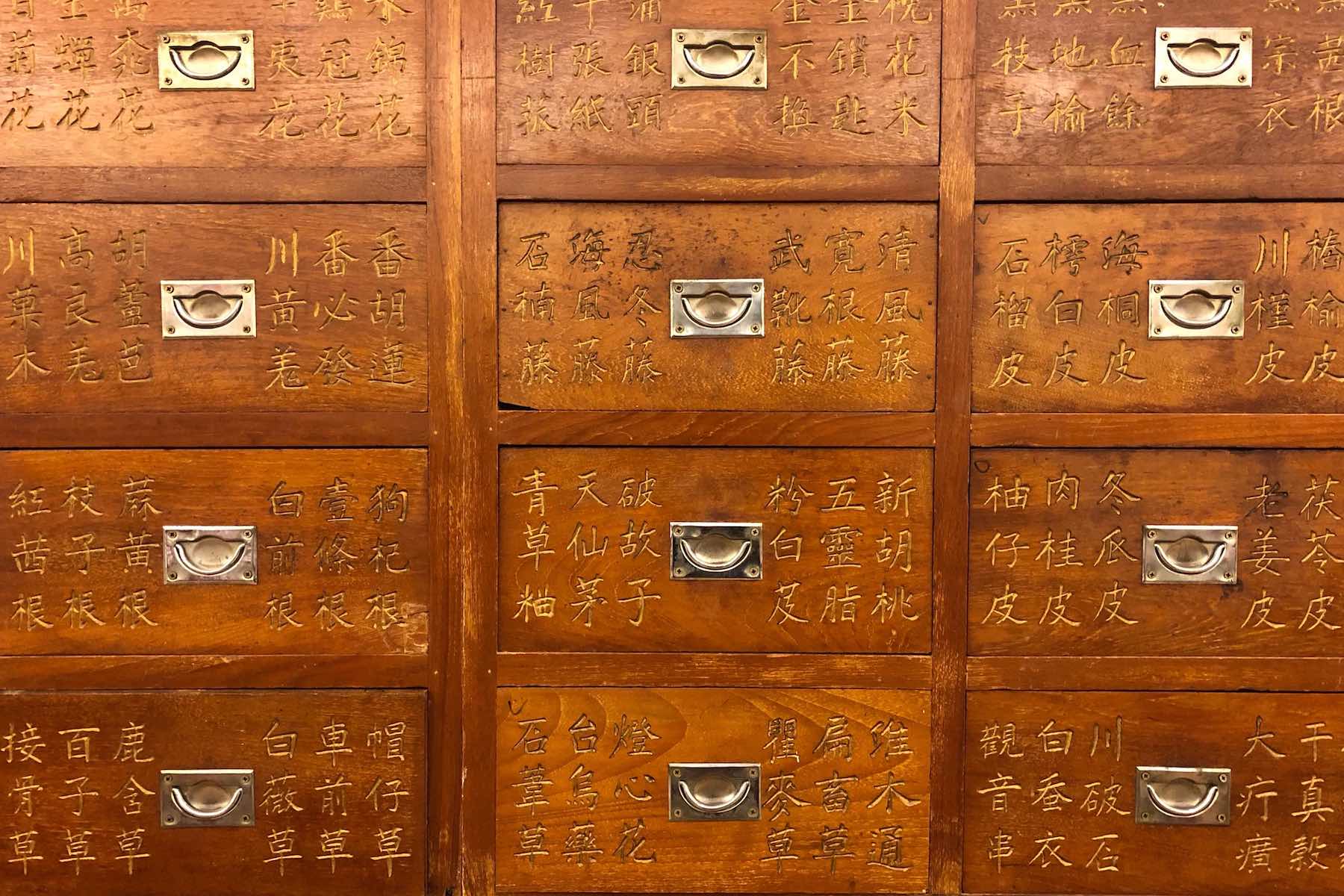
You can find various different types of CAM in Singapore, including:
- Acupuncture
- Chiropractic therapy
- Herbal remedies
- Homeopathy
- Reiki
- Traditional Malay and Indian medicines
- Transcranial Magnetic Stimulation
You can use MediSave insurance funding or private insurance to cover against CAM costs in Singapore. Research suggests that up to 76% of patients in Singapore used CAM to help with mental health issues. The Center for Complementary and Alternative Medicine (CCAM) is one of the main CAM facilities in Singapore. You can search for practitioners on the CCAM site.
Community healthcare in Singapore
Community-based health projects in Singapore include arts and cultural activities, social gatherings, gardening activities, and healthy eating projects. The Health Promotion Board (HPB) was set up in 2001 to promote health and prevent illness in Singapore by working in community spaces, schools, and workplaces.
Two larger organizations offering community health activities in Singapore are National Parks (gardening) and the National Arts Council (arts and culture). Meanwhile, the Agency for Integrated Care (AIC) runs a wellness program to engage older residents in meaningful activities to improve wellbeing.
If you are interested in community health activities, contact your local healthcare provider or one of these organizations directly.
What do you do in an emergency in Singapore?
In Singapore, the emergency number for an ambulance to take you to the emergency room (ER) in Singapore is 995. Private facilities sometimes have their own emergency numbers. Check with your healthcare provider or nearby medical facility if you have private insurance and wish to receive private emergency treatment. You can call 1777 for non-emergency medical help and advice.
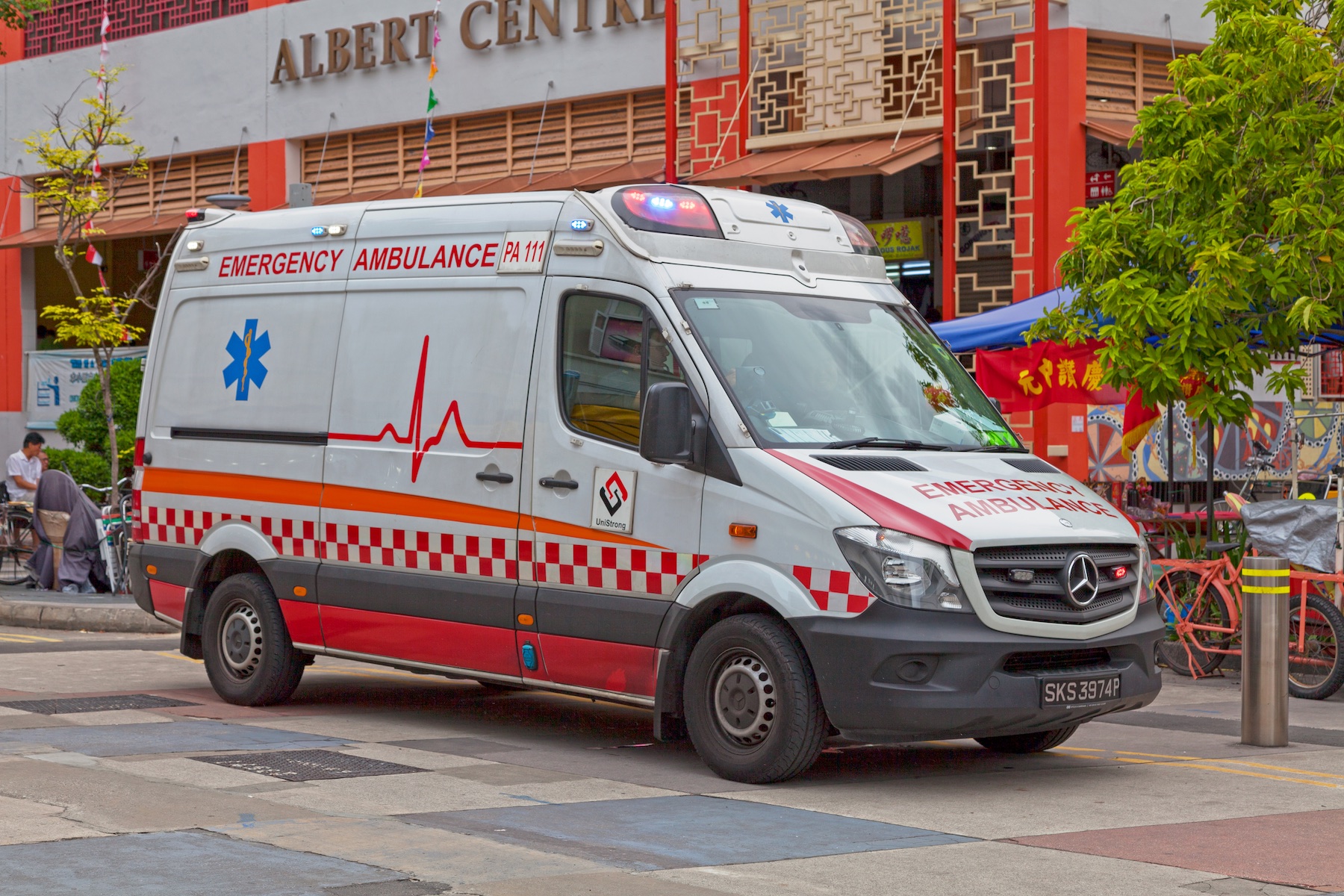
Most hospitals in Singapore have emergency departments, although there may be lengthy waiting times, depending on your condition and how busy the ER is. If possible, make sure you have your ID, residence card, or details of private insurance coverage with you.
How do you make a complaint about Singaporean healthcare?
If you want to complain about healthcare in Singapore, you should first contact the provider directly who may be able to offer a resolution without the need for further action. However, if this proves unsuccessful, you can escalate the matter to the healthcare institution where the provider is based. They should be able to investigate the query and get back to you within several weeks.
Finally, you can contact the relevant regulatory body as a last resort. For example, the Singapore Medical Council, the Singapore Dental Council, the Healthcare Mediation Scheme, or the MOH itself. This can take a few days to a year, depending on the institution and the nature of your grievance.
Useful resources
- Ministry of Health (MOH) – the government ministry responsible for healthcare in Singapore
- Central Provident Fund (CPF) – manages social security in Singapore including public health insurance
- MOH subsidy programs – healthcare schemes available to those with greater needs
- Health Promotion Board (HPB) – deals with health promotion and healthy lifestyles in Singapore
- WHO 2022 healthcare statistics – compare Singapore’s health statistics with those of other countries
- Allied Health Professionals Council – find a licensed physical therapist in Singapore
- TCM Practitioners Board – a list of licensed practitioners of Traditional Chinese Medicine
- Survivor Corps – an online community for those who suffer from long COVID
